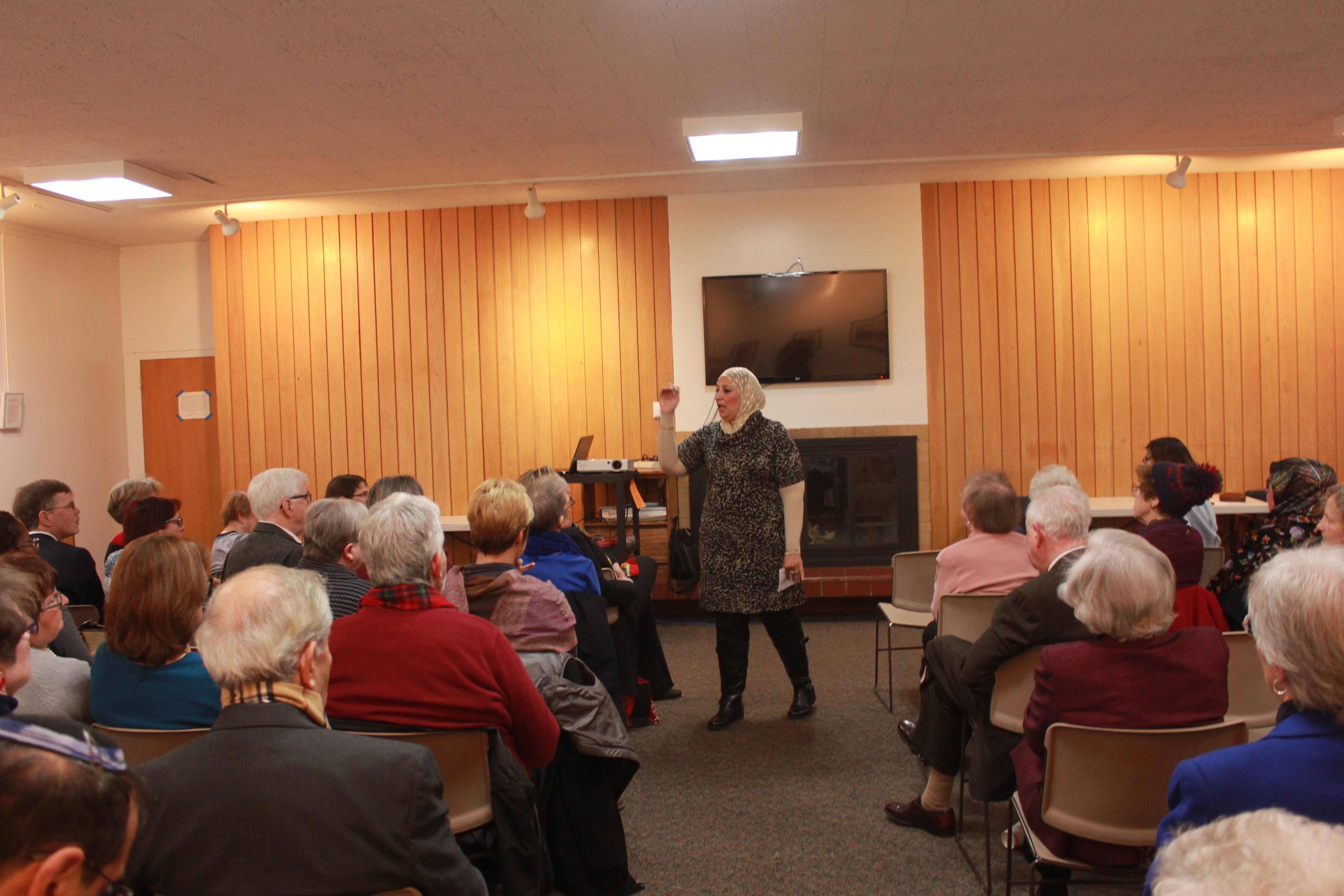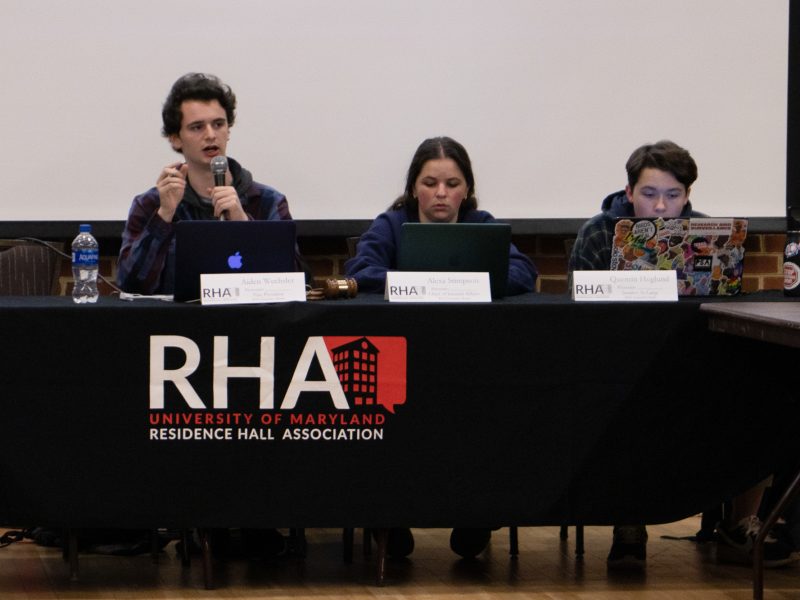By Gabriela Martínez
Sahar Khamis, a University of Maryland communication professor who specializes in Muslim media, held an interfaith talk at the Bradley Hills Presbyterian Church in Bethesda on Sunday to address facts and falsehoods about Islam.
She introduced the discussion to a crowd of about 50 with a short video titled “American Muslims: Facts vs. Fiction.”
One of the most common misconceptions Khamis discussed was the immediate association between Islam and terrorism. According the statistics presented in the video, 6 percent of terrorist attacks committed on U.S. soil have been motivated by Islam.
“We need to address this issue of a skewed and distorted media stereotyping and misrepresentation,” Khamis said. “We need to have counternarratives and alternative voices. We need alternative space so the moderate, sane, balanced, sensible voices are being heard on every side.”
Khamis also emphasized the role of younger generations and their use of social media as a tool to promote these counternarratives. As an example, Khamis mentioned a knife attack in an East London Tube station back in December, in which the assailant yelled, “This is for Syria.” After the man was hit with a stun gun and handcuffed, one of the bystanders at the scene called out, “You ain’t no Muslim, bruv!”
The phrase spawned a widely used hashtag, #youaintnomuslimbruv, which is now used to denounce terrorism and challenge the link between Islam and terrorist attacks, she said.
Khamis teaches a course on Arab media, and she said that during the first lecture, she asks her students, “Is every Arab a Muslim or is every Muslim an Arab?” The answer, she said, is neither. This question is meant to address another common generalization about who is a Muslim, she said.
“There are some very big Muslim-majority countries that are not Arab countries. In fact, the largest Muslim country in the world is Indonesia,” Khamis said.
During the Q&A session of the talk, a member of the audience asked for an explanation of the conflict between Sunnis and Shiites, which served as a platform for a discussion on how the media tends to portray Islam on the basis of conflict and violence.
“The media unfortunately has this principle of ‘if it bleeds, it leads,'” Khamis said. “Whenever there are acts of violence and aggression or hatred, the cameras are rolling. If you have a civil, interfaith dialogue like this one, who is interested?”
Daniel Spiro, one of the leaders of the Jewish-Islamic Dialogue Society of Washington, said conflict can also be leveraged in order to effect change through interfaith dialogues. Spiro mentioned successful movements, such as the gay rights movement, which flourished out of specific conflicts.
“We in the interfaith community need to capitalize on this notion and figure out how we can have a stage where our values can be presented through the conflict, if you will — through words, not violence. And the media will report on it more,” Spiro said.
Ellen Gagne, a member of the church, has attended Khamis’ series on Sundays.
“I’m concerned about Islamic hatred and fear in our country,” Gagne said. “The video showed us that American Muslims are just like average middle-class Americans. They give to charity. They’re doctors.”
Khamis also mentioned the idea of women and the use of the hijab. Although some people outside of Islam view the hijab as a sign of female subjugation, Khamis pointed out that using a veil is also a woman’s choice, and the act of using a hijab can be from faith and self-determination.
Khamis said she began using a hijab when she was 22 and finishing her master’s degree at The American University in Cairo.
“My parents were very neutral about it,” she said. “In fact, my father was not very enthusiastic.”
This university has student groups, such as the Jewish Muslim Alliance, that promote interfaith dialogue, Khamis said. She also has served as an adviser for Project Nur, led by the American Islamic Congress, which tries to bring together young people from different religious traditions.
“We need to have even more of these initiatives, and we need to revive and encourage them,” Khamis said.



